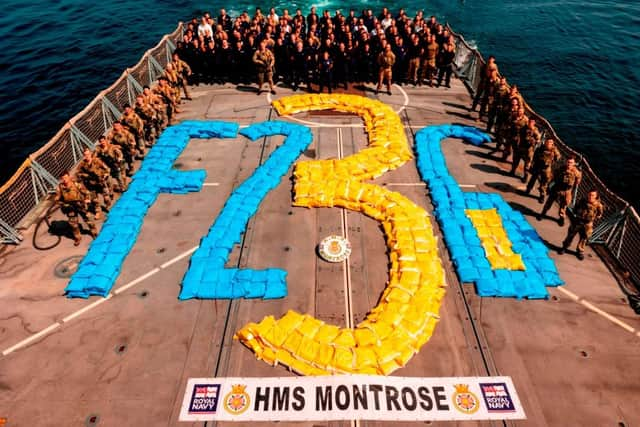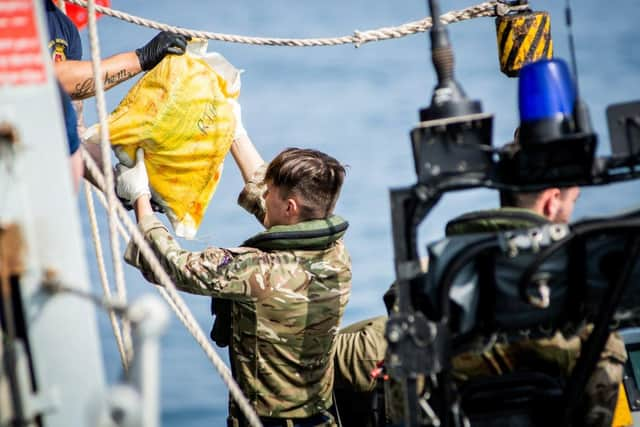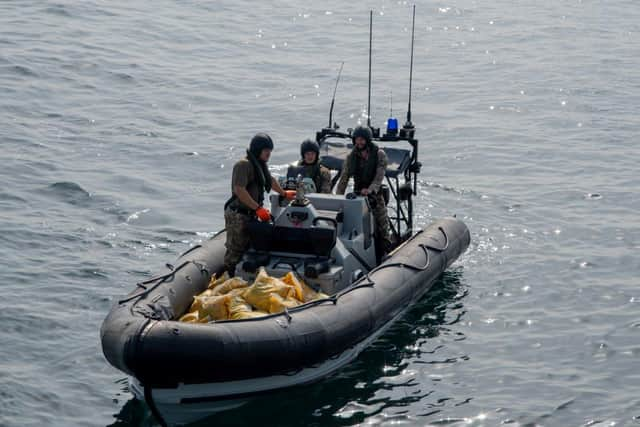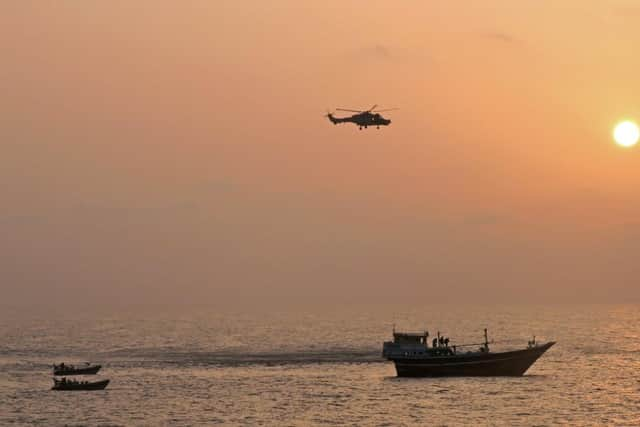Royal Navy's HMS Montrose scores cannabis bust worth £6.5m in Middle East Royal Marines operation
and live on Freeview channel 276
HMS Montrose and Royal Marines captured six-and-a-half tonnes of hashish worth £6.5m from a suspect dhow in a Middle East dawn raid – the heaviest haul of drugs seized by allied warships in the Middle East in a decade.
It’s the third strike of the year in the Gulf of Oman for the Bahrain-based warship – and the ninth she has scored since beginning her extended Middle East mission three years ago, depriving traffickers of an estimated £95m in total.


Advertisement
Hide AdAdvertisement
Hide AdDespite the sheer scale of the latest success – once again working for the international Combined Task Force 150, which tackles terrorism and criminal activity in the region – the boarding party was undaunted.
‘I’m really proud of the team; we conducted this boarding efficiently using the experience we’ve gained over the past three months,’ said Lieutenant Joe Martin RM, the Royal Marines boarding officer.
‘We learn each time we board a vessel, never resting on our laurels and continually honing our edge.’


Advertisement
Hide AdAdvertisement
Hide AdWhile the commandos and sailors conducted their thorough search of the suspect vessel, the ship’s Wildcat helicopter provided support and protection throughout.
The hashish, in the form of cannabis resin, was tallied and tested aboard HMS Montrose, a UK wholesale value of £6.5 million estimated, then the drugs were destroyed.
‘Once again, HMS Montrose and her ship’s company have proven their capability in the battle against illegal and illicit activity in the region,’ said the frigate’s delighted Commanding Officer Commander Claire Thompson.
‘Six and a half tonnes tonnes is a great achievement and these results only happen because of the collective effort and skill of the incredibly professional, highly-trained and dedicated people that the Royal Navy employs and that I have the privilege to command.’


Advertisement
Hide AdAdvertisement
Hide AdThe commander of Montrose’s parent task group, CTF 150, Commodore Vaqar Muhammad of the Pakistani Navy, added: ‘This seizure of such a huge quantity of narcotics in a single boarding is highly commendable.
‘HMS Montrose has always been geared up and proactive in interdicting illegal activities in the CTF-150 Area of Operation, conducting three boarding operations on three consecutive days to finally get this success.’
Commodore Adrian Fryer, the senior Royal Navy officer in the Gulf region, said the success underscored the importance of the frigate’s long-term presence in the region.
‘It is extremely rewarding to see the hard work of our sailors pay off with such a large scale seizure and I know they will be as proud of their work as I am of them,” he added.


Advertisement
Hide AdAdvertisement
Hide Ad‘Actions like this deprive criminal and terrorist organisations of the funds they need to function and has a positive impact both here in the Middle East region and in the parts of the world, including the UK, that these narcotics would have been eventually sold.’
